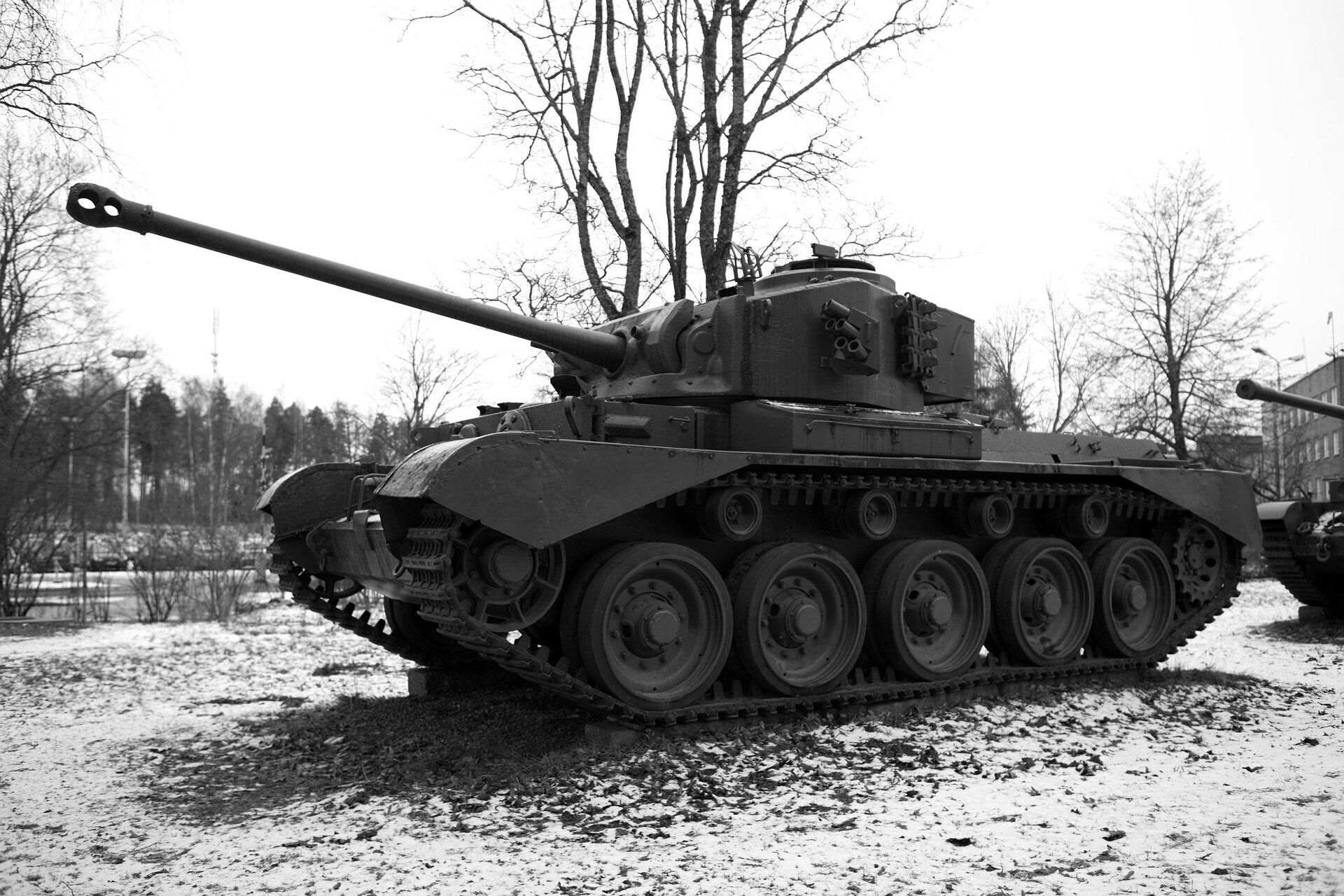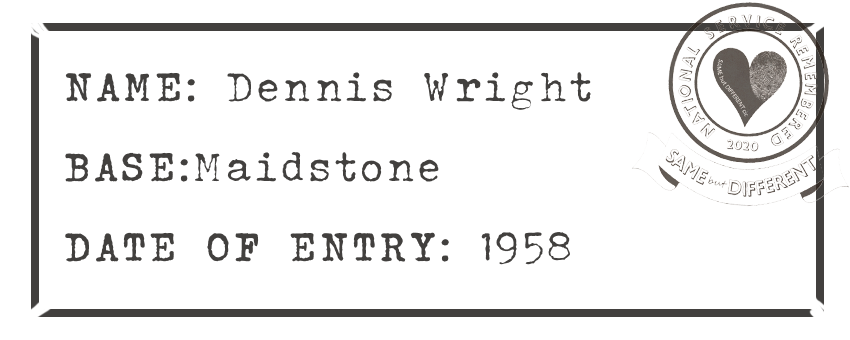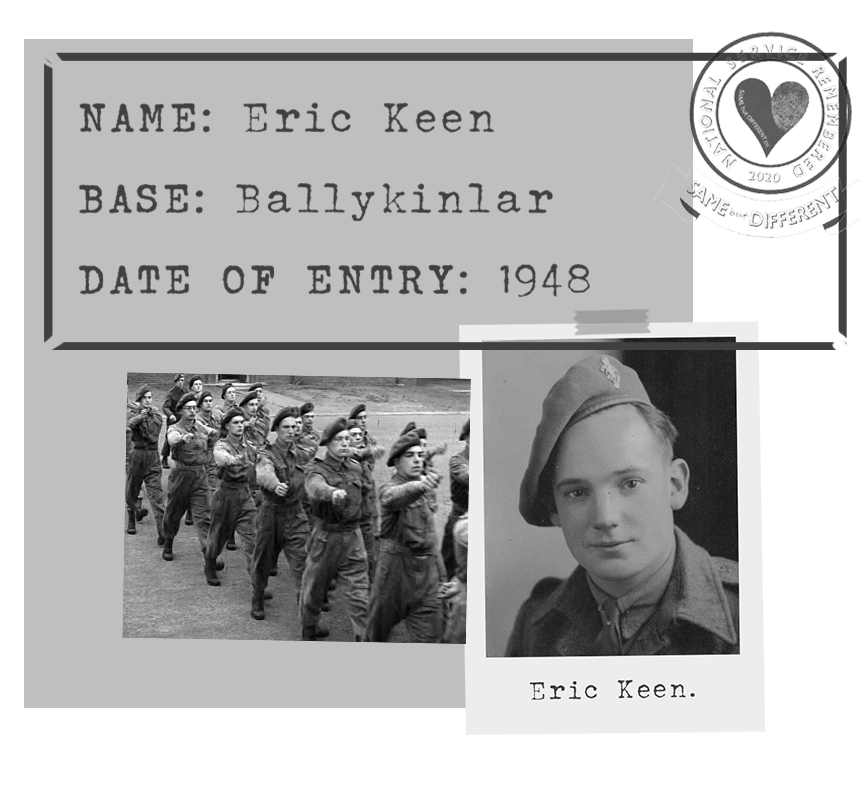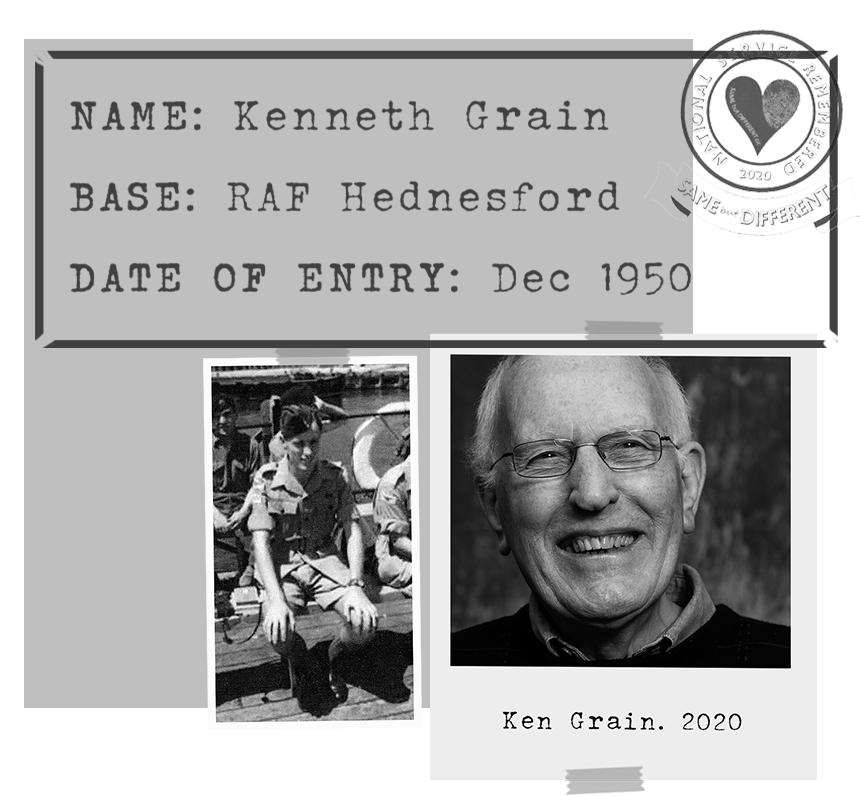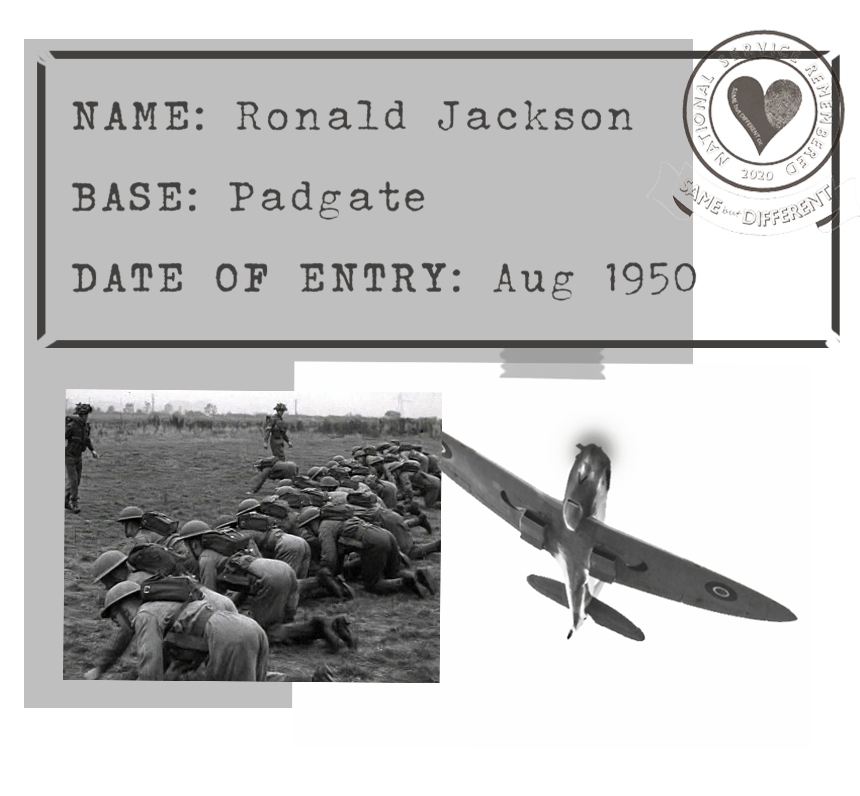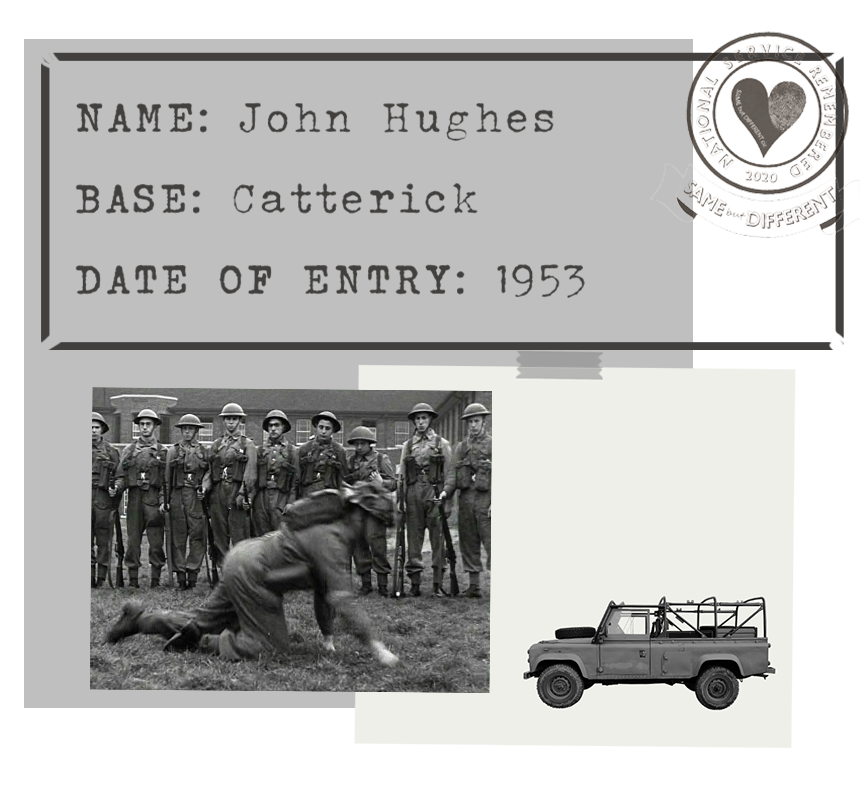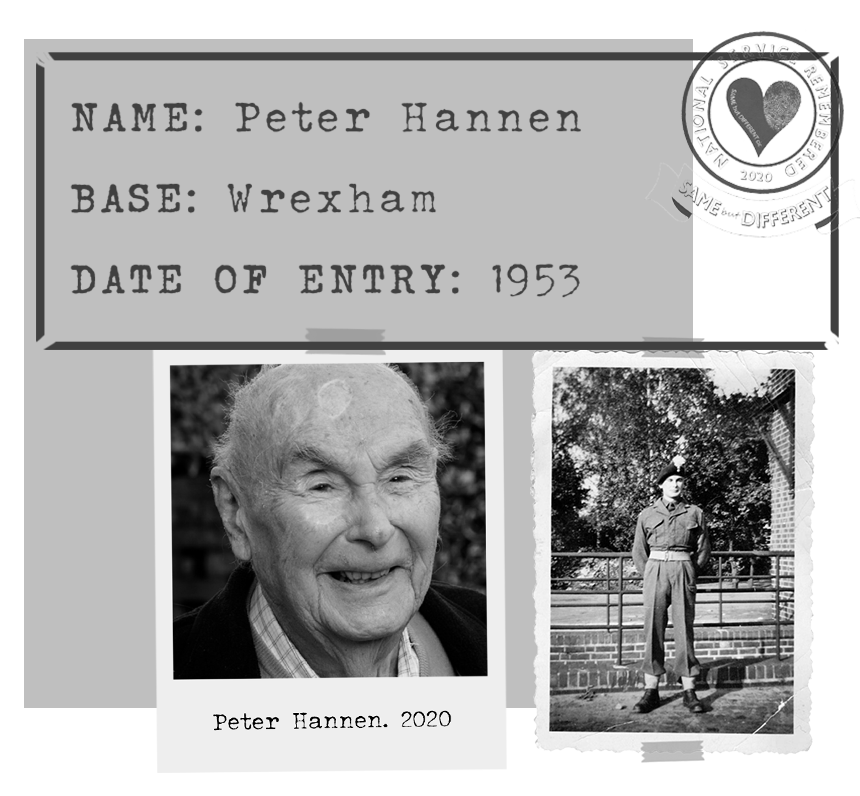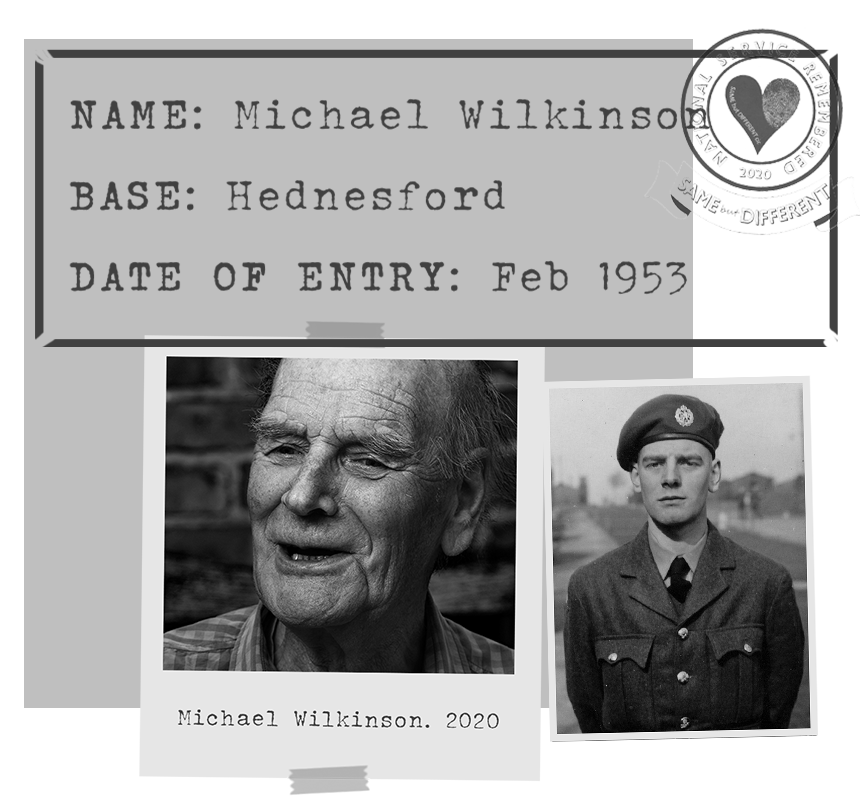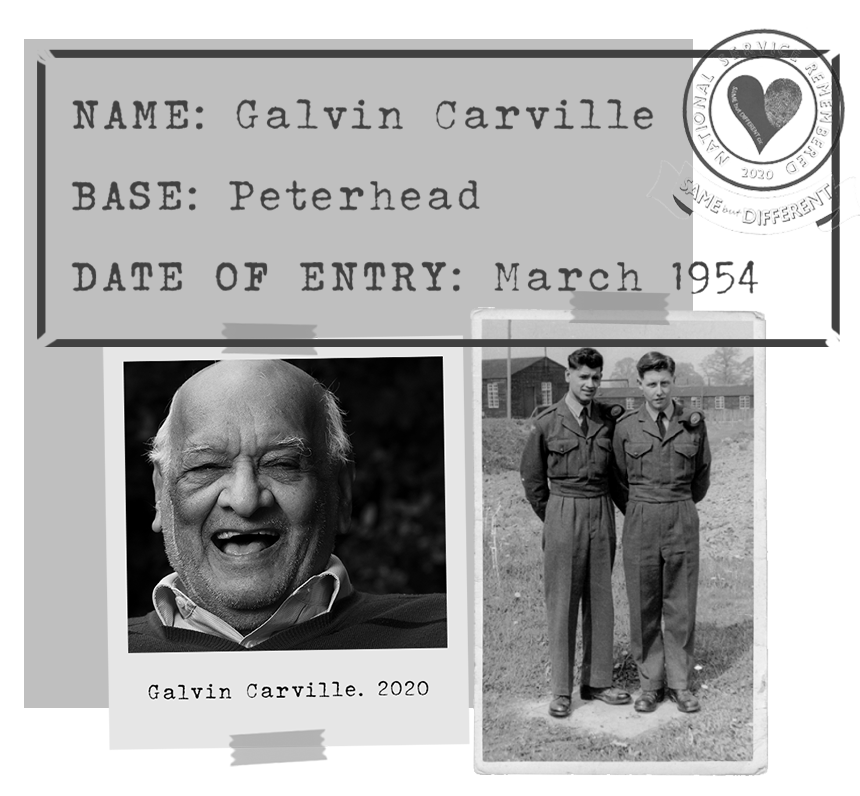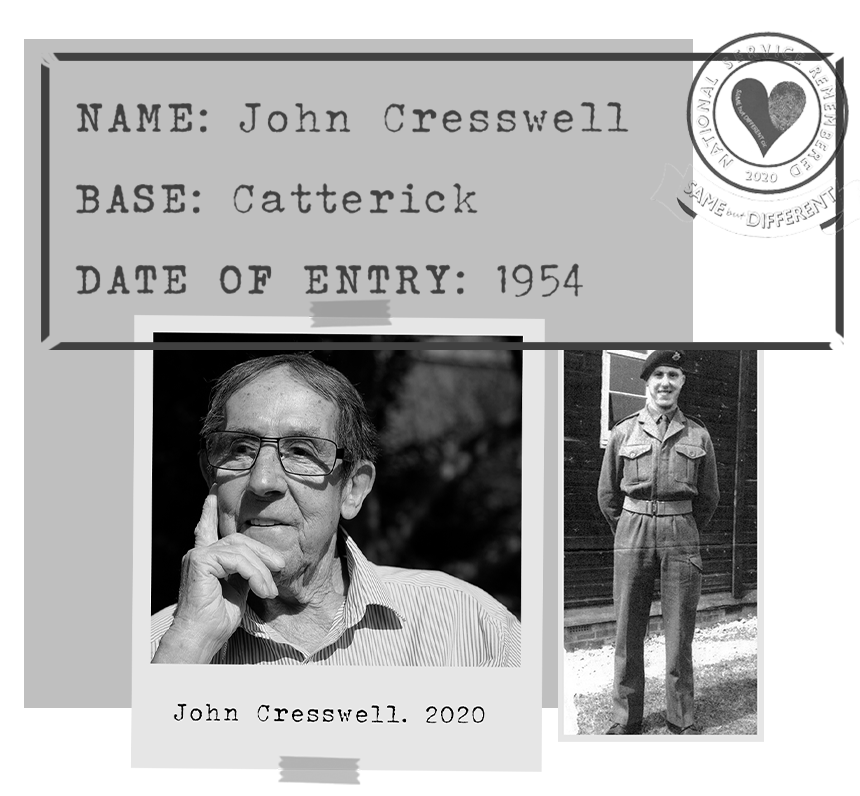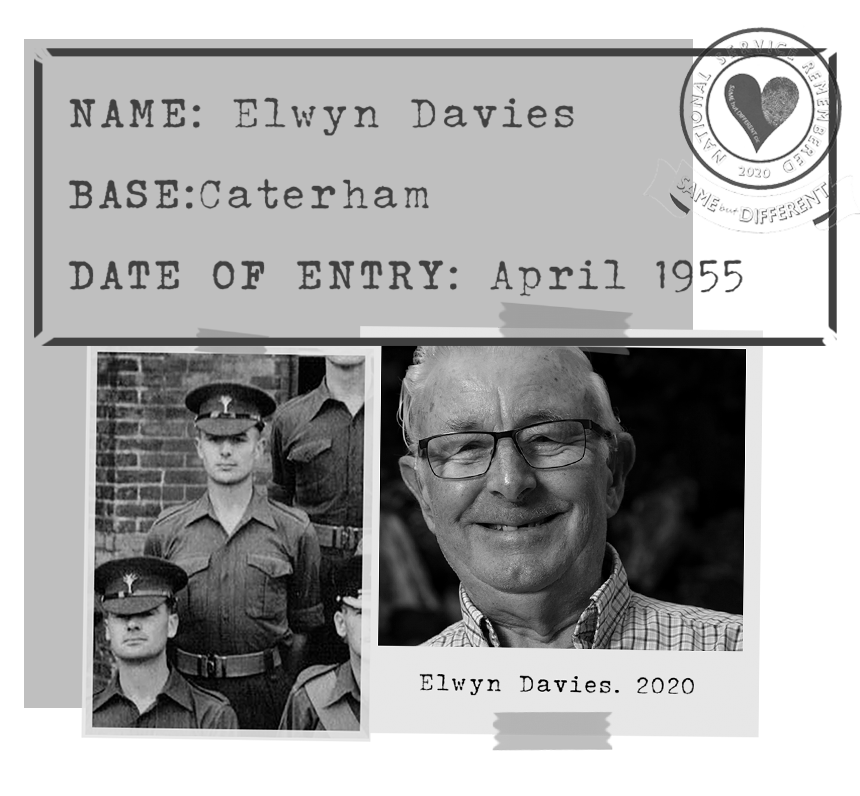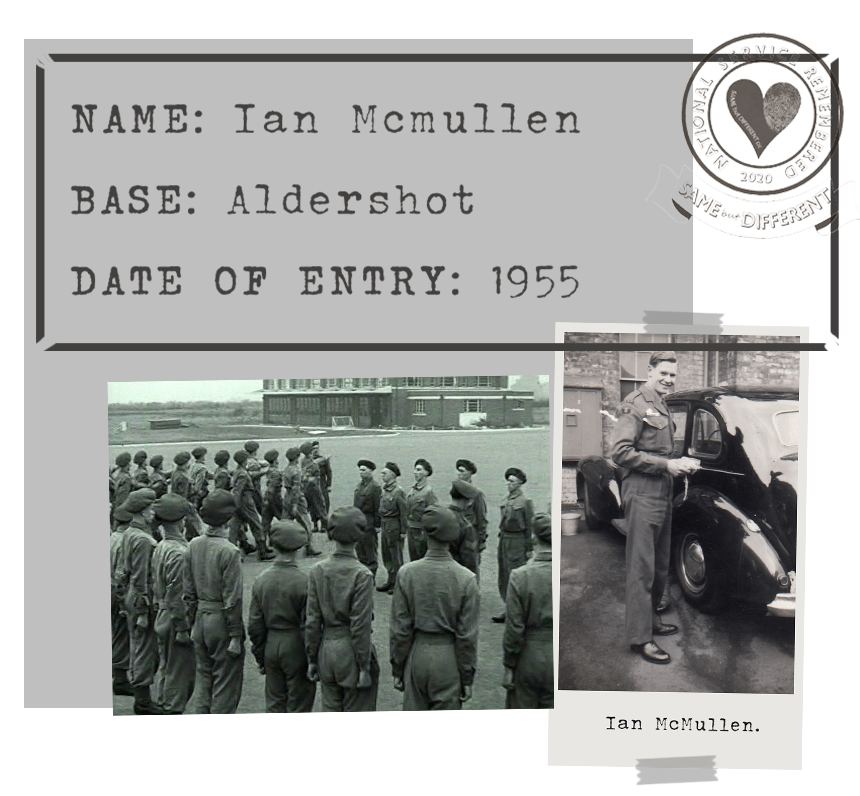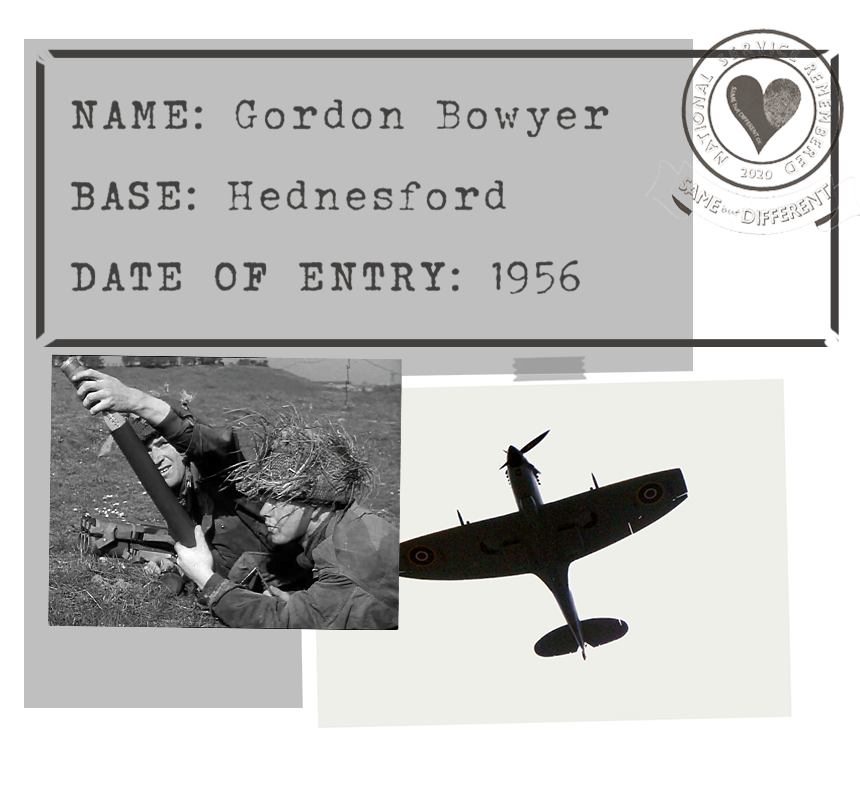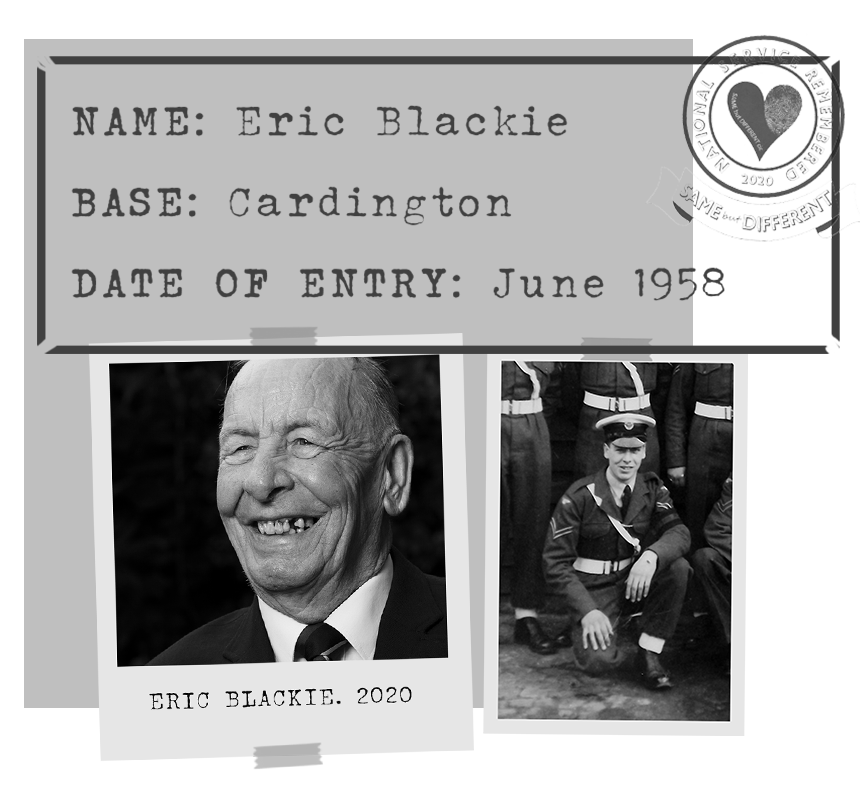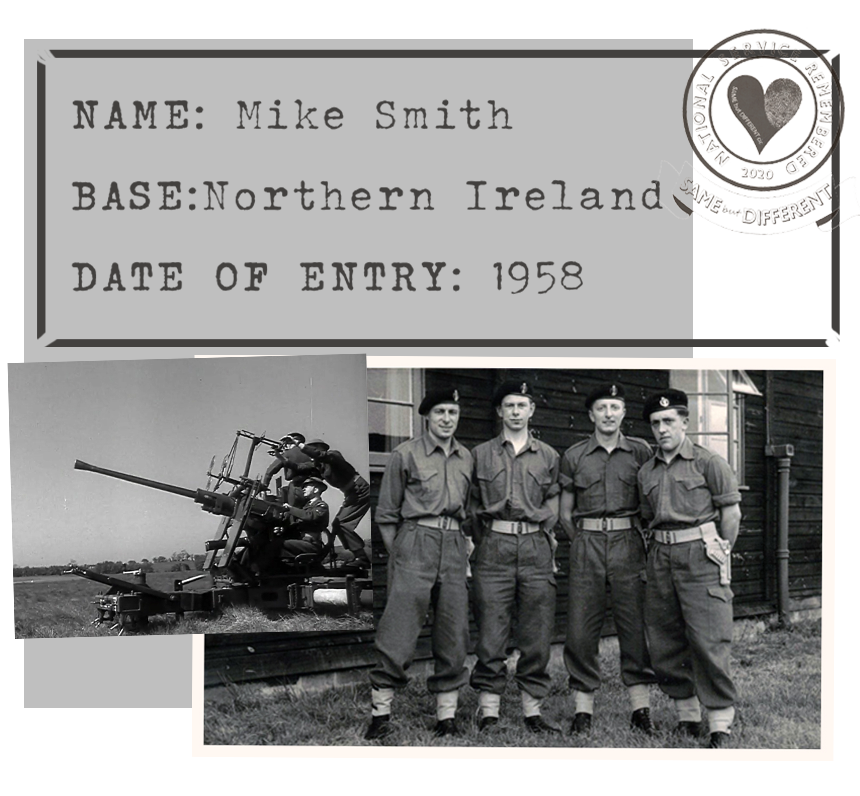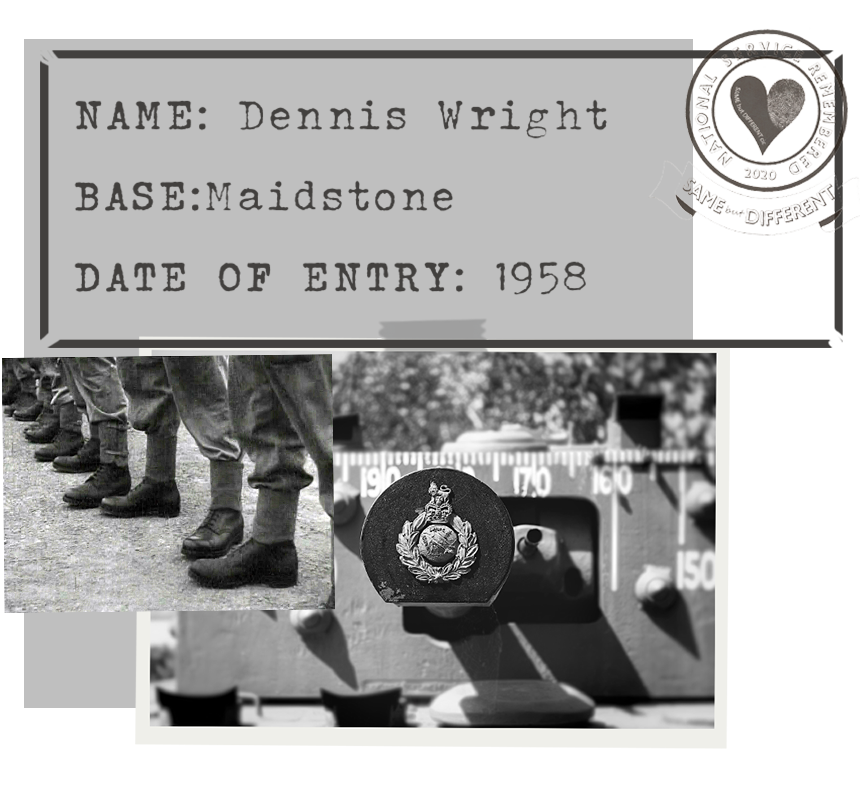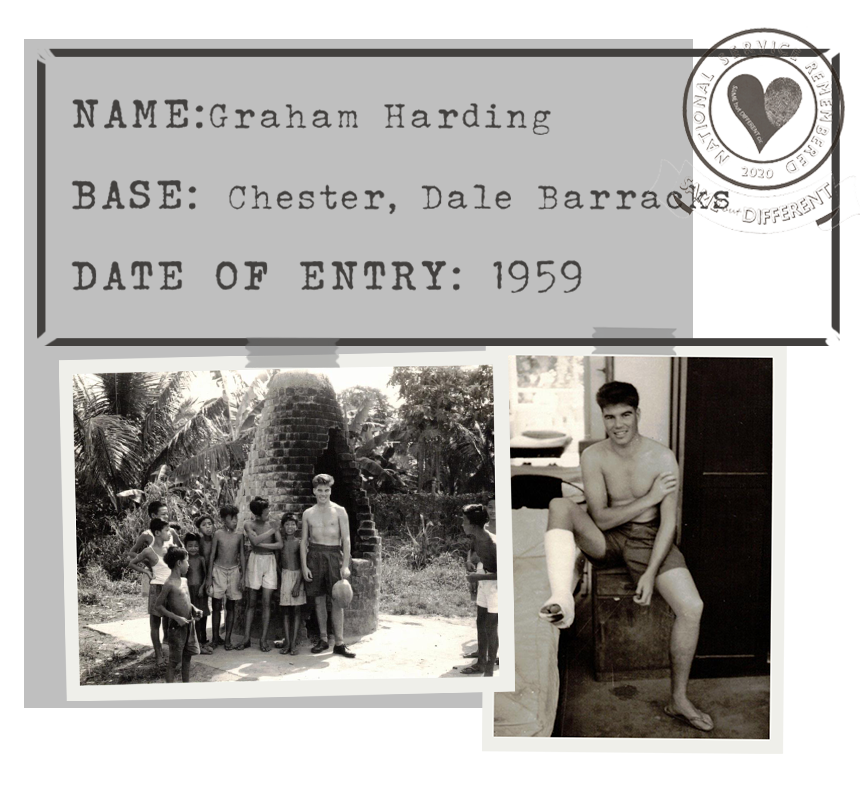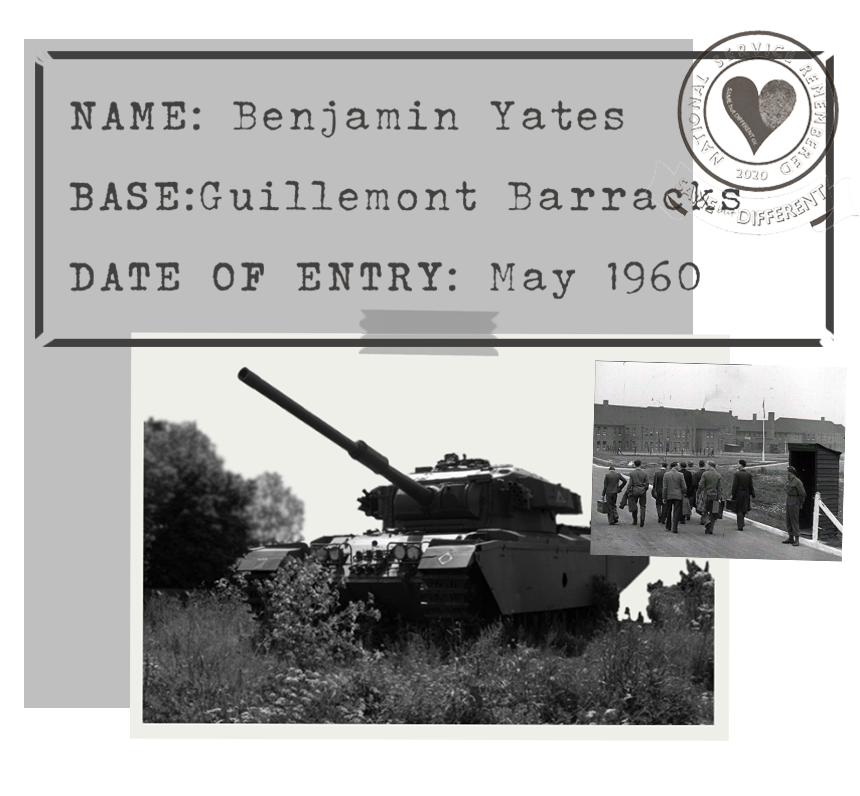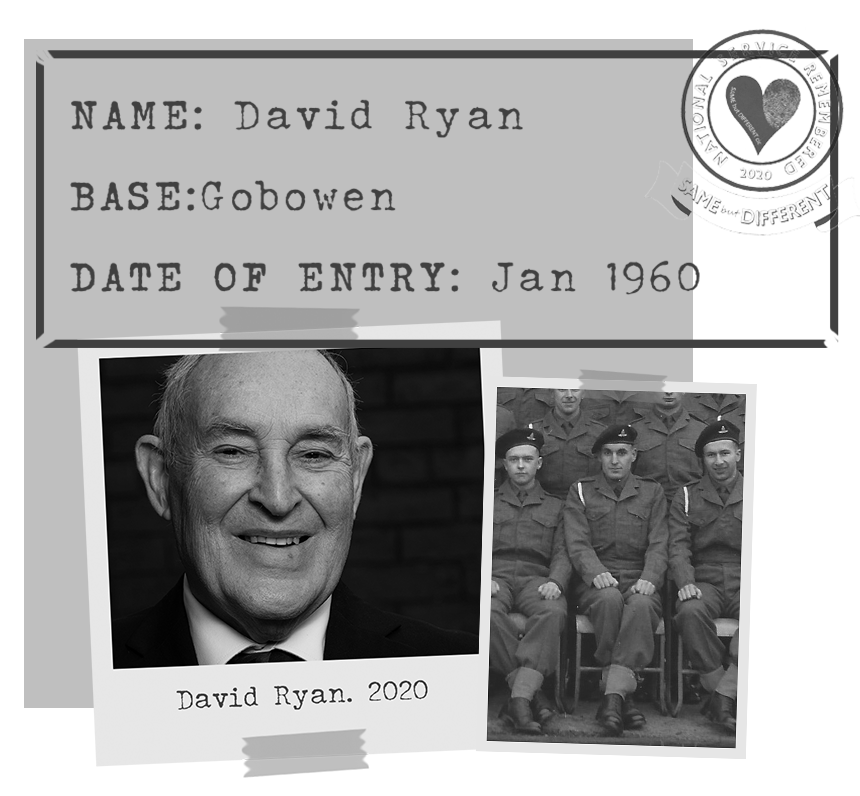“National Service filled me full of confidence, it made me much more secure... it was a bit like school in the way it socialised you.”
I was 19 and it would have been 1958.
I always knew that I would be doing it, although sometimes there were exceptions, perhaps if you were going to university or you had some other training or profession, meant that you wouldn’t have to go if you didn’t want to.
I was going to university but didn’t quite get the grades I wanted. I applied to the Metropolitan Police Force who were willing to accept me and asked me to report for duty in two weeks’ time. The following day I got call-up papers to say I was required down at the Royal West Kent’s in Maidstone, which is an infantry regiment. I was to be there for 3 months for basic infantry training.
We had an early morning call as you can imagine and they would come bashing on the beds with their sticks, usually about 6 o’clock in the morning and then we’d get up and get washed and dressed ready for parade. That was the first part of the day. It was very different. Because there were other chaps my age as well, I didn’t feel concerned about it, we were all in it together. Maybe 18 of us to a room, over 100 of us. A platoon of us, I think is the official title.
After the 3 months, I thought I would like to join the educational Corp. I was quite keen on physical education and routines didn’t trouble me too much. Everything was a routine and time-honored fashion and parades and drill and square-bashing and endless hours out on the parade ground, marching about. As the weeks wore by and we got more skilled, we didn’t spend so much time on the parade ground but of course we had other tasks to do, like cookhouse duty, washing and cleaning.
“We had an early morning call as you can imagine and they would come bashing on the beds with their sticks, usually about 6 o’clock in the morning and then we’d get up and get washed and dressed ready for parade”
Once I joined the Educational Corps, I knew it would be three months training and at the end of it, I would be an acting Sergeant. The army Educational Corps was in Beaconsfield, Buckinghamshire. We were in huts that were corrugated roofed buildings, very cold, with fire burners. We passed out and I got a posting to 30 Army Education Centre which was in Millbank, so I was able to commute every day from my home in North London. I was quite happy to go to London, I had no wish to go abroad at that stage.
London district base was a Horse-Guard parade so I was, on occasion, on Horse-Guard parade. Although I taught engineers and tankmen, I taught mostly Guardsmen, foot or horse-back soldiers, who would be on the birthday celebrations for the queen and other events on the parade ground.
We taught army certificates of education, which were usually English, Arithmetic, general studies and map reading.
I did teach Corporals and Sergeants on various subjects because one or two of them were keen to develop their knowledge. I wasn’t very experienced in teaching so I had to learn my way through it. I finished there after 2 years. Although I taught mostly at the Army Education Centre, I also taught in the Tower of London. I went there to teach the fusiliers, the resident groups in the Tower, that was quite something.
The pay wasn’t very much, 3 shillings and a penny per day, just over £1 a week. When I left to work, I started on £500 a year which was about £10 a week.
It was nice to go home but the best part was getting back again and meeting all your mates, coming in one by one and the excitement of someone else you knew coming back in, everyone yelling in excitement. It was even alright with the alarm call in the morning for a while. That was the great thing about it, we were from all different walks of life. I kept in touch with one or two of them but gradually I moved away from London and eventually came up to Shropshire. National Service filled me full of confidence, it made me much more secure, not that I was uncertain but it did that for you, it was a bit like school in the way it socialises you.
On one occasion they were all on parade and they were having a surprise inspection on their socks. They had to take their boots off and one of them had a hole in his sock. Well, as a consequence the whole troop was made to stand up during their lesson, and I had to teach them whilst they stood up. It just seemed a rum way of dealing with the education in that respect, but that’s how it was, that was quite amusing. It’s difficult to teach people when they’re standing. Generally, soldiers were eager to learn. I never found they were distracted although they were under discipline the whole time - as a soldier you must do it in a disciplined way, you’ve got to understand and be professional in what you do.
I tell my children about the instances, the good and bad things.
I can recall for example, I had to study map reading when I was training as an instructor. I wasn’t a first class map reader and I remember one afternoon was practical skills. Having prepared some questions and taken some measurements, distances and identified objects and compass points, we set off for Box Hill with two people carriers, me in the front leading the way and I got lost! Travelling south through London - I was a North Londoner and I was lost. I hoped they didn’t pick up that I was lost but I think they did in the end. It’s something to tell the children. It could be fun, National Service had all those elements to it but I’m not sure I want to do it again. I never faced any foe though.
After the army, I went to work in a research centre in Leatherhead, Surrey, the British Coal Utilization Research Association where I became a research officer, experimenting with the use of burning of coal domestically, fires and heaters.
I do look back fondly.


